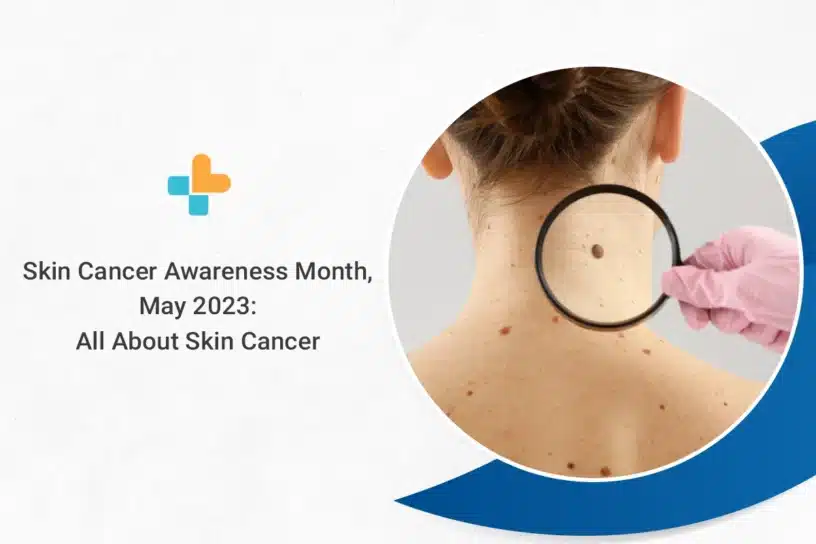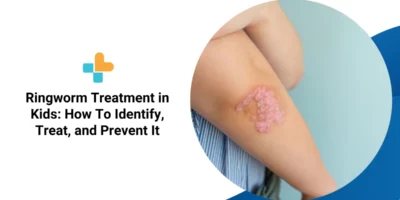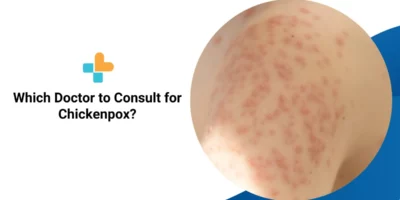Skin cancer awareness month is observed every year in the month of May. This annual campaign is held every year to raise awareness about skin cancer, its symptoms, risk factors, prevention, early detection, and treatment. Skin cancer awareness month is an initiative to educate people about the various skin cancer risk factors and encourage them to get regular skin examinations to detect skin cancer early. This month also focuses on creating awareness about sun safety practices.
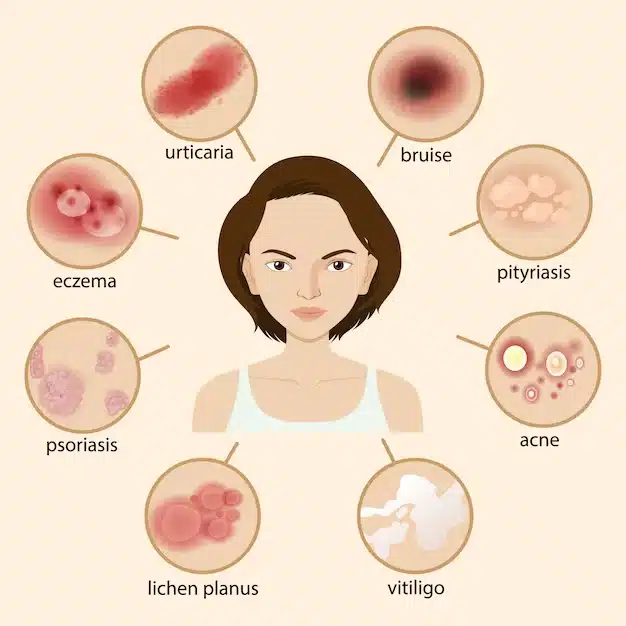
What is skin cancer?
Skin cancer is a cancer that is characterized by the abnormal growth of skin cells. Skin cancer, in most cases, is seen on the skin that is exposed to the sun. However, this prevalent type of cancer can also occur in areas of the skin that are typically not exposed to sunlight. In many instances, skin cancer, when caught early, are treatable. Some of the symptoms of skin cancer may include the appearance of new patches on the skin, changes in the color or shape, or size of skin growth, etc.
What are the skin cancer types?
- Basal cell carcinoma: This skin cancer originates from the basal cells, which are responsible for regenerating new skin cells in the lower layer of the epidermis.
- Squamous cell cancer: This form of cancer arises from the squamous cells, which are flat and thin cells composing the outermost layer of the skin.
- Melanoma: This form of skin cancer occurs in the skin cells called melanocytes which are responsible for providing color to the skin.
What are the symptoms of skin cancer?
One of the most common symptoms indicating skin cancer is the change in the skin. This change in the skin can be either a new growth or any change in a mole already there. The various other skin cancer symptoms may include the following,
- Changes in the color, shape, or size of an existing more
- Bleeding from a mole
- A new growth or mole on the skin
- A patch or a bump on the skin that is flat and pin, brown or red in color
- Sores on the skin that are deep in the center and have a crusty appearance
- Scar-like patches on the skin
- A scaly lesion that causes bleeding or itching
- A wound or a sore that is not healing
What does the skin cancer look like?
Depending on the type of skin cancer, there are several characteristics they may exhibit. The ABCDE rule is useful in identifying potential skin cancer symptoms. The ABCDE rule is,
- Asymmetry: The lesion or mole has an uneven or asymmetrical shape.
- Border: The edges of the affected area are blurry or have irregular shapes.
- Color: The mole or skin growth displays multiple colors.
- Diameter: The lesion measures about 6 millimeters in diameter, which is larger than the size of a pencil rubber.
- Evolution: The lesion is evolving, which means it is changing in shape, color, size, or other noticeable features. This is considered the most significant sign to be vigilant about.
If you notice any of the above-mentioned signs and symptoms of skin cancer, show it to a doctor immediately.
What are the causes of skin cancer?
Skin cancer occurs as a result of abnormal mutations in the DNA of the skin cells. The exact causes of skin cancer are not known. However, there are certain risk factors that may increase your risk of developing skin cancer. Some of these risk factors of skin cancer may include the following,
- Exposure to UV light from sun rays, sun lamps, and tanning beds
- A family history of skin cancer
- A personal history of skin cancer
- A compromised immune system due to the effect of certain medications
- Certain moles
- Sunburns
- A history of organ transplant
- Having actinic keratosis
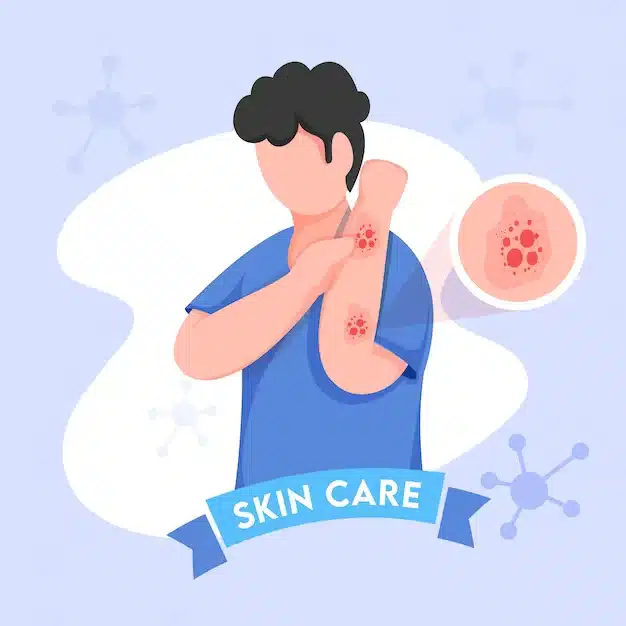
How is skin cancer treated?
There are various options that are available for treating skin cancer. Some of these treatments for skin cancer may include the following,
- Cryosurgery
- Mohs surgery
- Excisional surgery
- Curettage and electrodesiccation
- Photodynamic therapy
- Chemotherapy
- Biological therapy
- Radiation therapy
- Immunotherapy
How to prevent skin cancer?
To lower your risk of developing skin cancer, it is advised to avoid exposure to UV rays for long duration. The following tips may help in reducing your skin cancer risk,
- Avoid going out in the sun between 10 a.m. to 4 p.m. This is because the UV rays are the strongest at that time. Seek shade or apply sunscreen if you have to go out at that time.
- Use umbrellas, hats, sun glasses, scarfs and long-sleeved clothes when going out in the sun
- Apply lip balms and creams with sun protection factor (SPF) of 30 or more
- Apply sunscreen whenever going out and ensure to reapply it every 2-3 hours
- Examine your skin regularly for any abnormal skin changes to get skin cancer diagnosed early
Conclusion
Skin cancer awareness month 2023, is a great opportunity to educate people about skin cancer symptoms and risk factors. As knowing about the skin cancer symptoms and regular examination of skin can help in early detection of the cancer. Early detection of skin cancer can help in imitating its early treatment. Ensure to spread awareness about the importance of using a sunscreen this Skin cancer awareness month 2023. Help people learn more about the importance of stepping out with proper precautions in the sun.
At Ayu Health Network of Hospitals, our team of experienced and skilled oncologists provide the best treatments and care for all cancer, including skin cancer. We have the best services to assist our patients and ensure that they feel completely satisfied. Apart from this, we also have Ayu Mitra available to help our patients with any queries they may have throughout their hospital journey, starting from admission to discharge. To know more, visit our website at www.ayu.health.
Our Hospital Locations
Oncology Surgery Hospitals in Bangalore | Oncology Surgery Hospitals in Jaipur | Oncology Surgery Hospitals in NCR | Oncology Surgery Hospitals in Hyderabad
Our Doctors
Oncology Surgery Doctors in Bangalore | Oncology Surgery Doctors in Jaipur | Oncology Surgery Doctors in NCR | Oncology Surgery Doctors in Hyderabad
About the Author

Dr. S. Goel
Dr. S. Goel is a renowned Internal Medicine Specialist currently practicing at Ayu Health, Bangalore. He is a Specialist in Internal Medicine, Diabetes HTN, Paediatric Care, and Family Medicine.

